Supply Chain Management Report: Incoterms, Strategies, and Analysis
VerifiedAdded on 2022/12/27
|5
|796
|39
Report
AI Summary
This report provides an analysis of supply chain management, focusing on the importance of Incoterms and supplier strategies. It begins by defining Incoterms and their role in guiding trading operations, emphasizing the need for understanding these terms to avoid potential issues. The report then recommends a supplier realization strategy, advocating for a reduction in the number of suppliers to foster stronger, long-term relationships. The advantages of this strategy, including reduced production costs, risk mitigation, and improved efficiency, are thoroughly discussed. The report also acknowledges potential disadvantages, such as supplier competitiveness and the risk of late deliveries. The conclusion reinforces the significance of understanding Incoterms and adopting the supplier realization strategy to enhance customer satisfaction and streamline operations. The report includes references to support its arguments.
1 out of 5
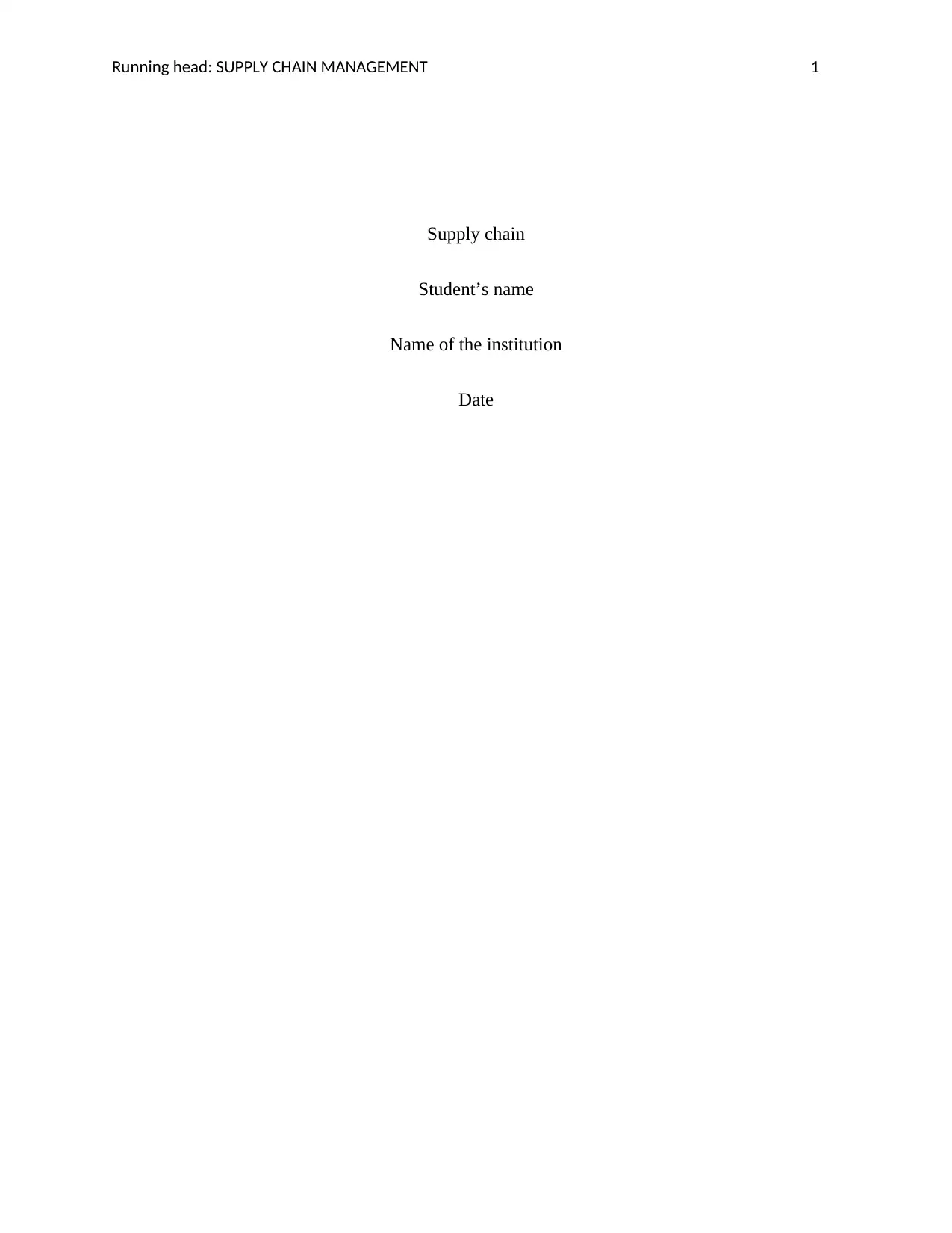
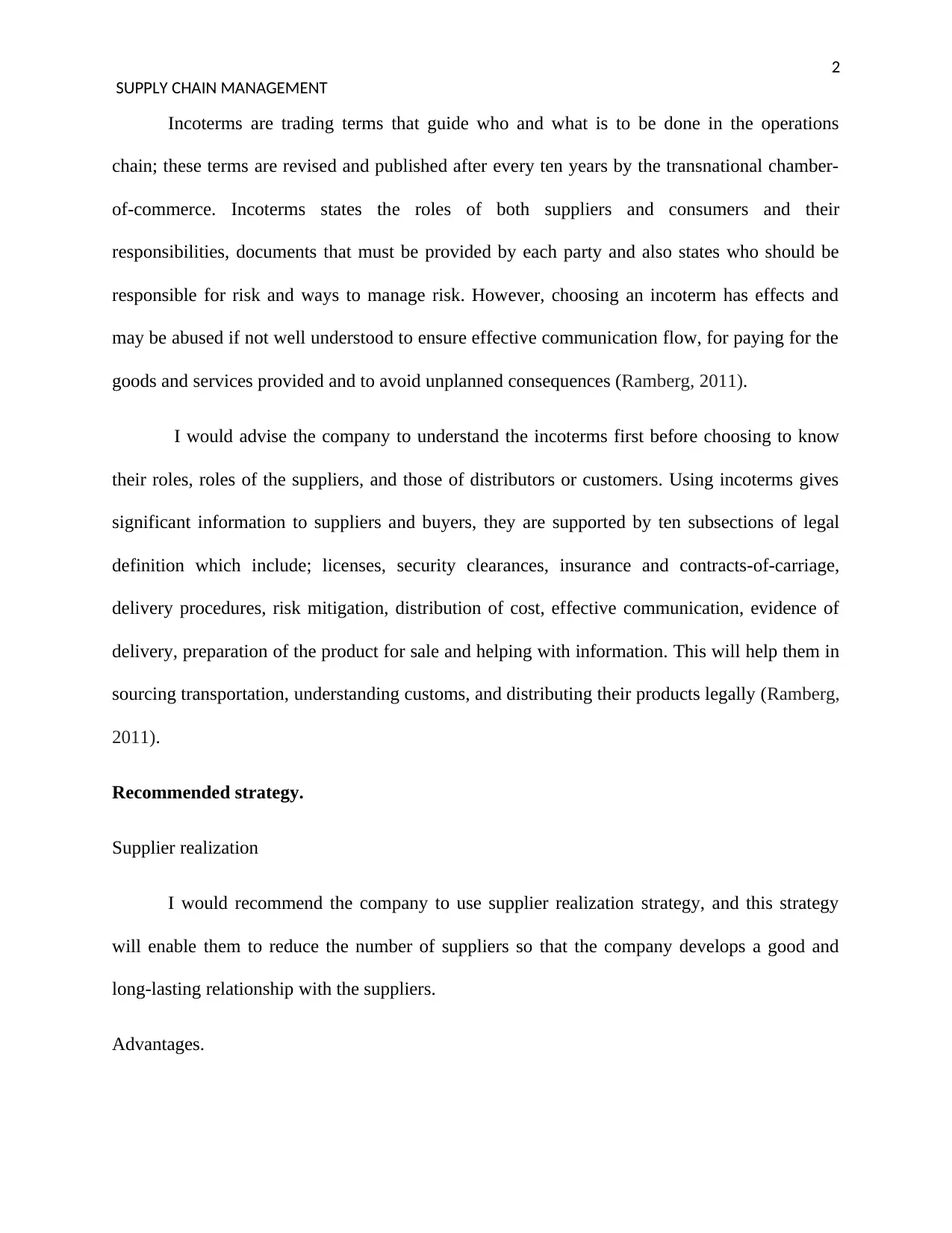
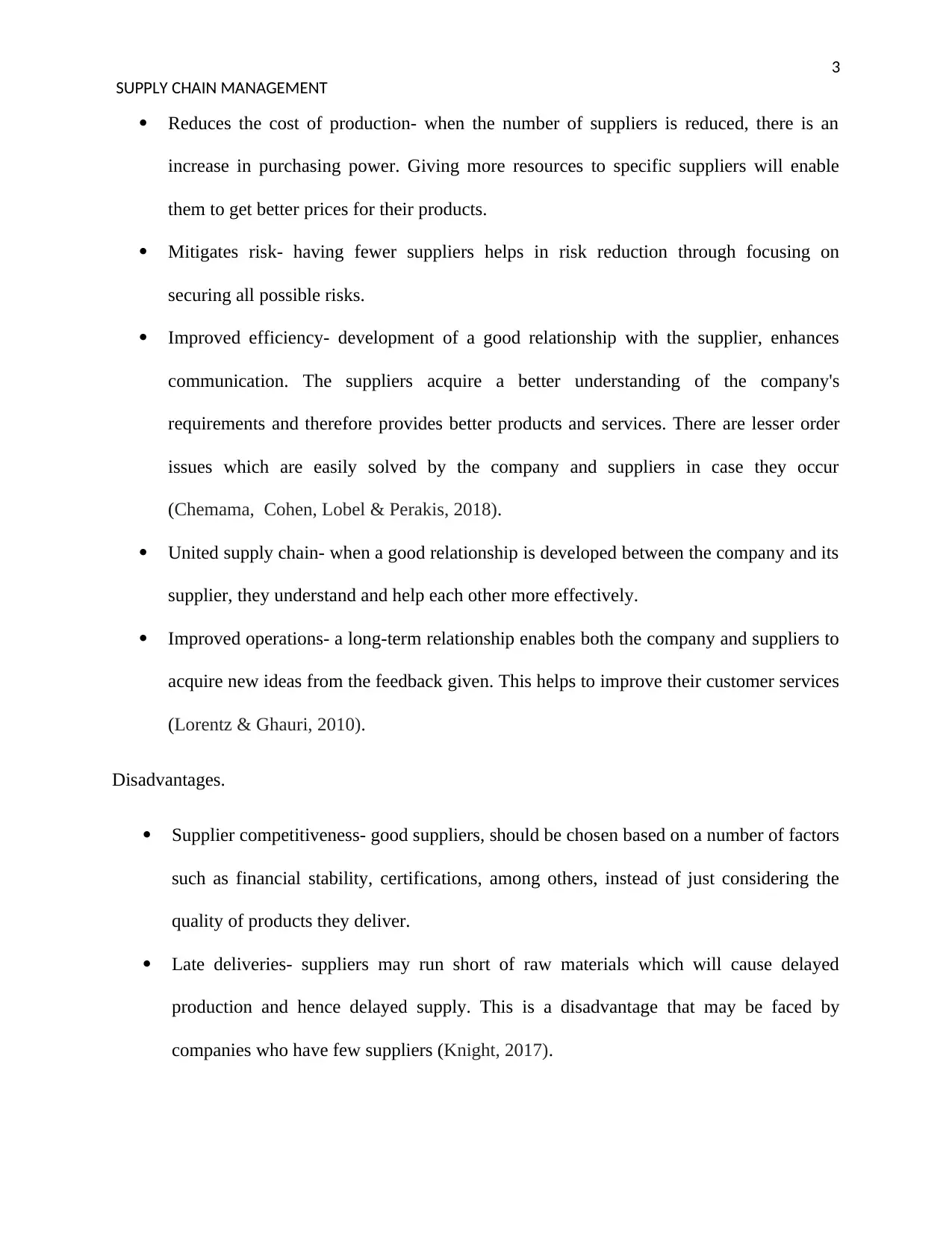

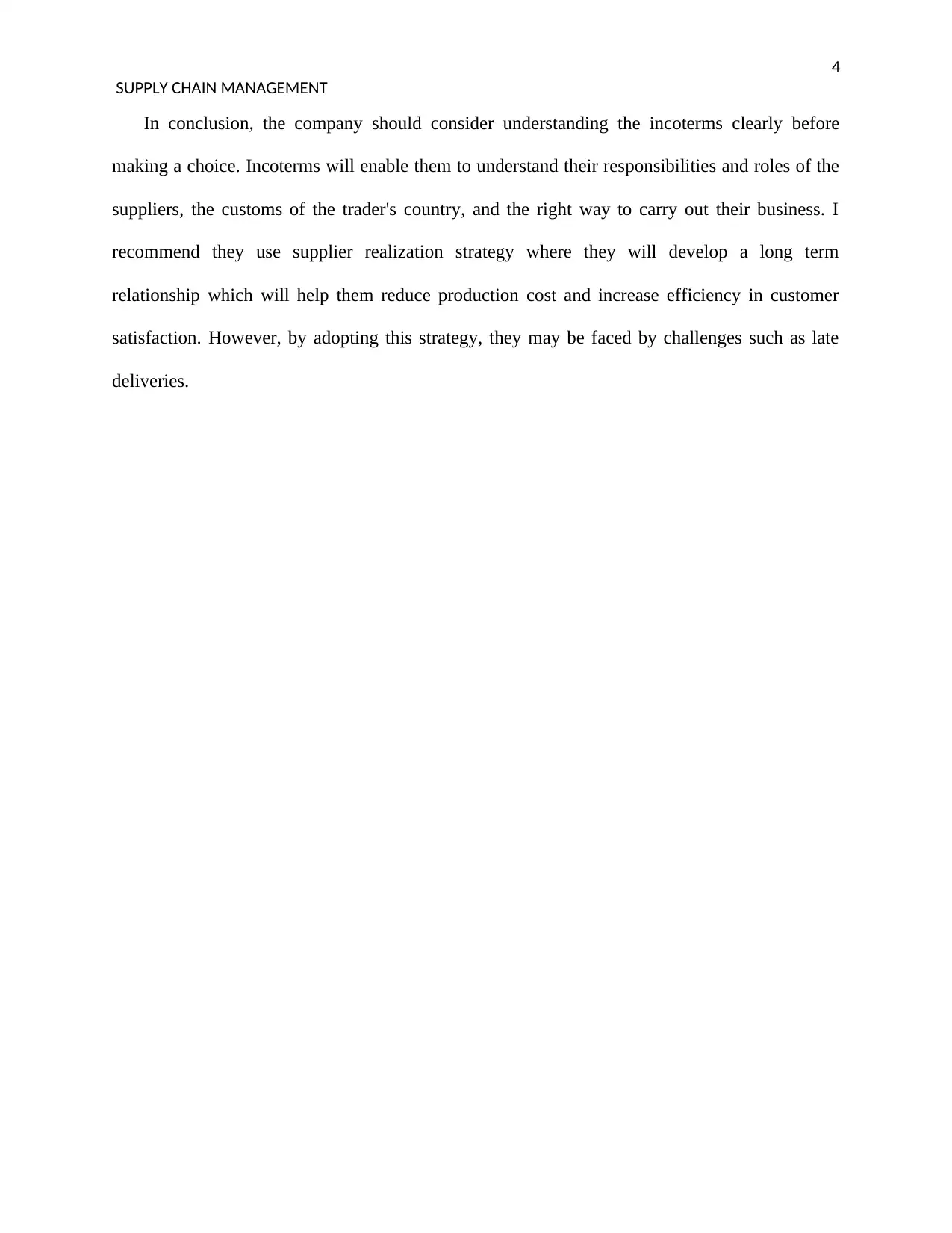
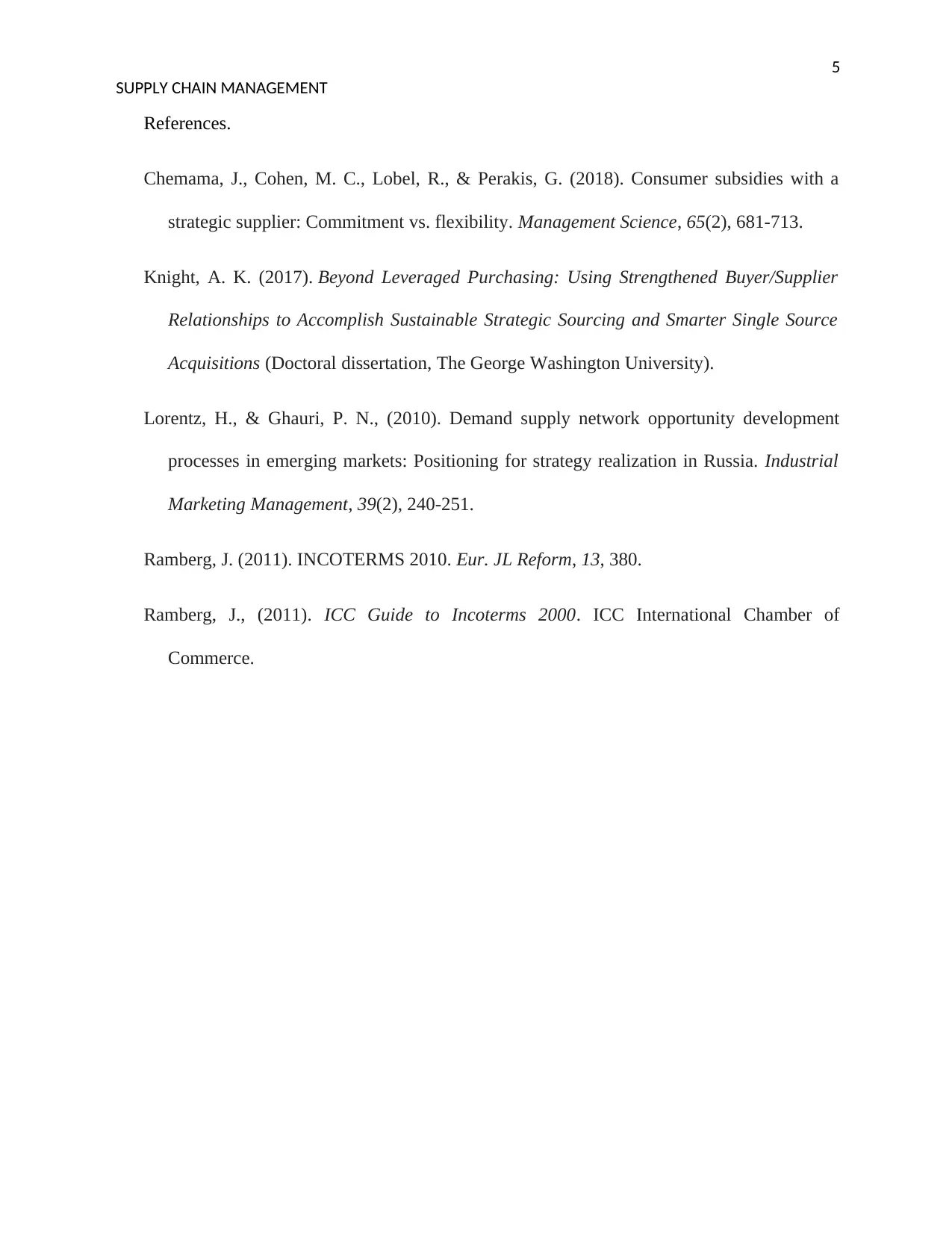





![[object Object]](/_next/static/media/star-bottom.7253800d.svg)